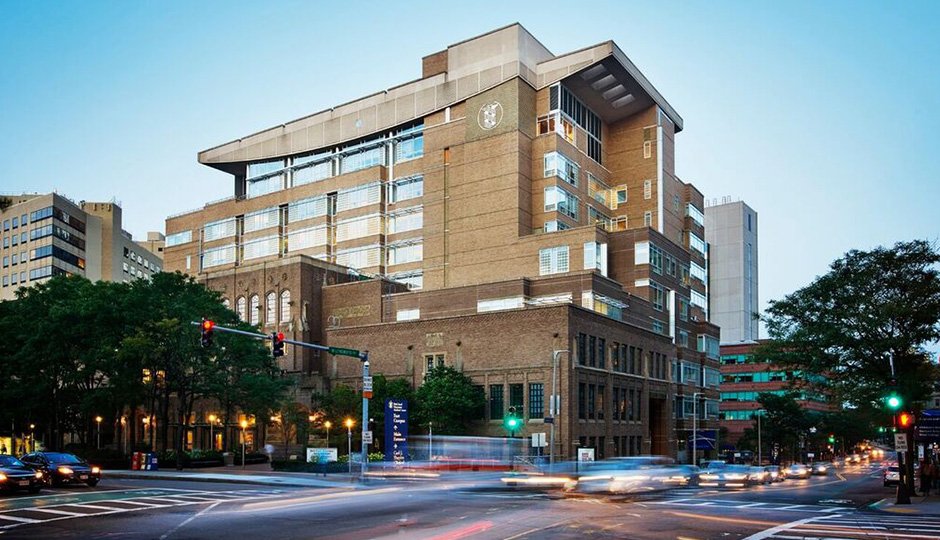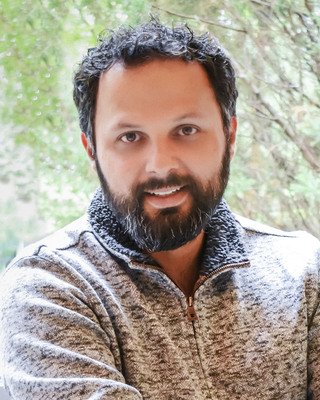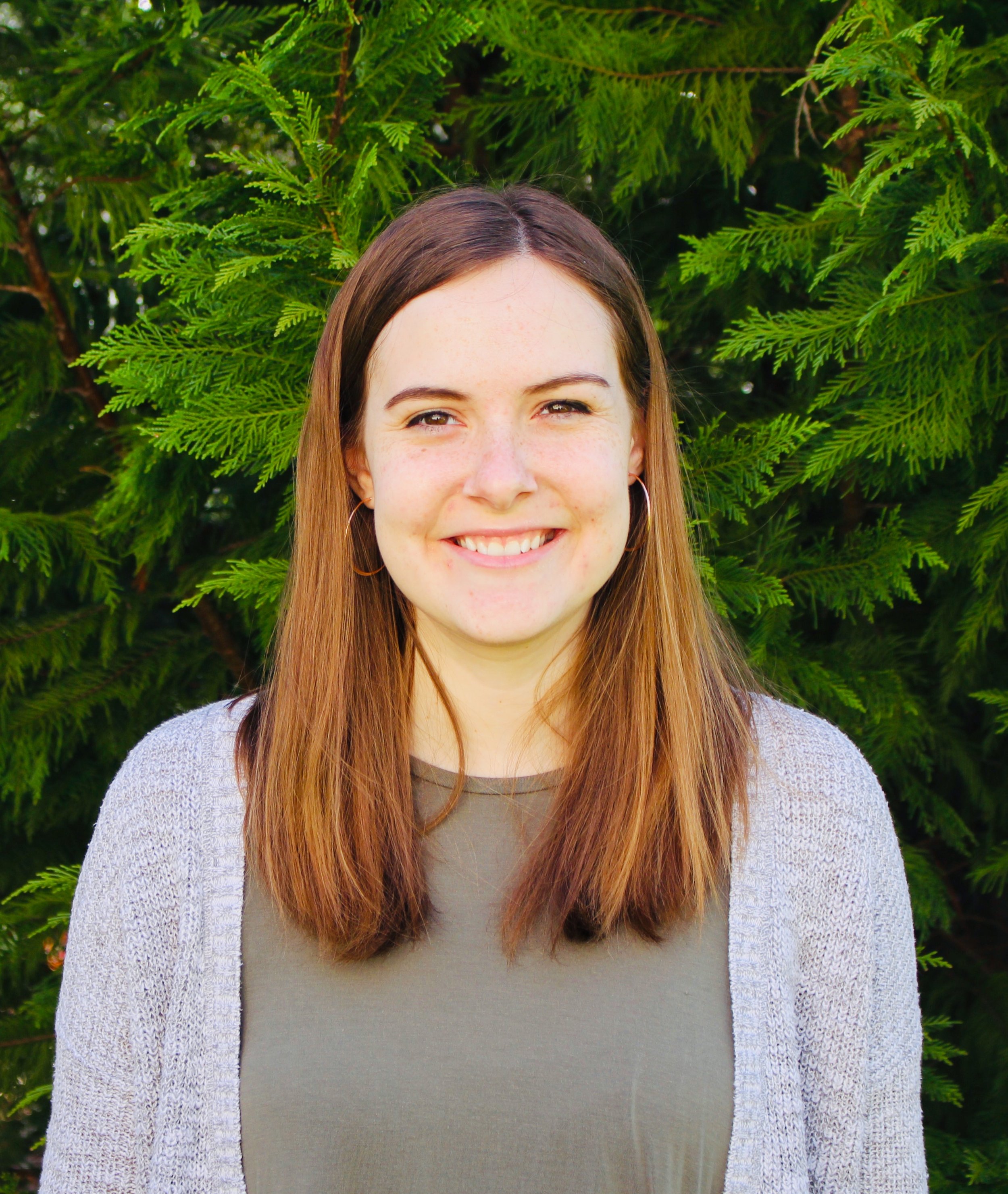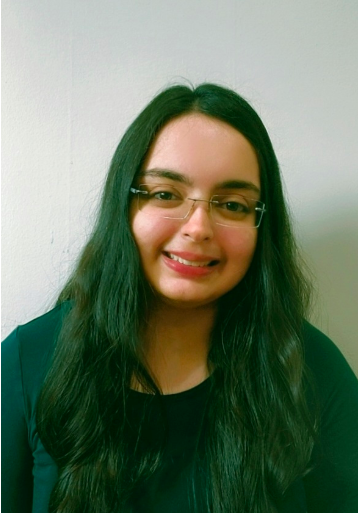
ASPIRE Clinic
The Advancing Services for Psychosis Integration and Recovery (ASPIRE) clinic is accepting referrals at Beth Israel Deaconess Medical Center (BIDMC). We provide comprehensive evaluation and outpatient treatment for individuals experiencing early symptoms of psychosis. Integrated within the larger BIDMC community, we offer coordinated, multidisciplinary care focused on every patient’s individual needs. Our academic center also offers opportunities to participate in clinical research geared toward understanding and developing innovative treatments for early psychosis.
Links and Contacts:
Call us at: (857)264-0526
Email us at: aspire-clinic@bidmc.harvard.edu
ASPIRE Clinic
Advancing Services for Psychosis Integration and Recovery
What is Psychosis?
Psychosis occurs when one experiences an altered version of reality, such as seeing, hearing, tasting or feeling things that others can’t. These sensations can be extremely distressing as they make it difficult to decipher what is and is not real. Psychotic symptoms can lead to feelings of isolation and hopelessness, but it is important to remember that psychosis is treatable, and recovery is possible. Psychotic experiences are part of the human experience.
ASPIRE is a first episode psychosis clinic that focuses on early intervention, as well as decreasing stigma and societal misconceptions about individuals who experience psychotic symptoms. We emphasize hope, community integration, and sustainable recovery.
What are the treatments for Psychosis that ASPIRE offers?
Medication treatment (including long acting injectables)
Individual and/or Group Therapy
Multifamily Group Therapy
Cognitive Enhancement Therapy
School and/or Work Coaching
Neuropsychological Testing and Feedback
Social and Peer Support
What do we offer?
Disruptions caused by psychotic symptoms can lead to unwanted repercussions in social, work, school life, and relationships. ASPIRE aims to minimize the magnitude of these disruptions and get individuals back to their healthiest, happiest self. Our clinicians take time to get to know each patient, and understand their experiences with psychosis prior to ASPIRE, as well as how it has evolved (and hopefully improved) since joining our clinic. We develop treatment plans in alignment with the patient’s personal goals and periodically re-evaluate the efficacy of our treatment approach. ASPIRE offers both in-person and virtual appointments and the duration of treatment is typically two years. ASPIRE differs from a Partial Hospitalization Program (PHP) as we are not a day program, but rather offer outpatient services and appointments.
Comprehensive Diagnostic and Neuropsychological Assessments
The ASPIRE clinic provides one of the most comprehensive psychiatric evaluations for patients experiencing early course psychosis, which includes psychological, cognitive, and psychiatric assessments. These assessments are paired with blood testing and brain imaging to rule other potential causes for the presenting symptom. During the intake session and once every 6 months, each patient is encouraged to complete a neuropsychological assessment that evaluates their current level of social and cognitive functioning. The initial assessment will serve as a basis of comparison throughout the treatment process and provide objective evidence of their progress.
Medication Management
The ASPIRE Clinic provides comprehensive medication counseling and management where patient feedback on their experience with each medication is critical. Each person responds differently to varying medications/doses and we work to find the most effective and personalized regimen. We understand the stress that can be associated with this process and prioritize harm reduction when prescribing antipsychotic medications; we aim to find the medication(s) with the least possible side effects that provide the best results, keeping the patient 100% informed throughout their treatment.
Information Session
The ASPIRE clinic offers a quarterly psychoeducation presentation for new patients and families to learn more about the services offered and to meet the team. This information session is designed to create a safe space where patients and families can ask questions about psychosis and engage with others, including their ASPIRE team.
Individual Therapy
Each patient has the opportunity to meet weekly for 1-hour-long sessions with a social worker/psychologist/psychiatrist. ASPIRE offers a variety of different therapeutic approaches including cognitive behavioral therapy for psychosis, supportive therapy, resilience focused therapy, psychoeducation, and family work. Our clinicians aim to establish trust between themselves and the patient as we recognize the importance of assurance in therapeutic relationships. We hope you leave each session with an elevated level of awareness, empowerment and motivation to take concrete steps to take toward recovery.
Group Therapies:
Multifamily Group (MFG):
Led by 2 licensed clinicians and include virtual meetings bi-weekly for about 1.5 hour. Both patient and family member/social support are encouraged to attend.
In all walks of life, support systems are important. When dealing with psychosis, it can be especially difficult for individuals to articulate their feelings and the same goes for the family member/social support of the patient. The purpose of MFG is to create an integrated, educational, and community-based approach to treatment. Educating family members/social support about the symptoms of psychosis has proven to increase positive treatment outcomes. We provide each person with knowledge about the illness process and a toolkit of resources to decrease stress brought about by psychotic symptoms.
MFGs also aim to decrease feelings of isolation for both the patient and their family members. By hearing others’ experiences, they will be able to see that they, along with their loved one, are not alone. Despite the isolated, disheartening situations that can be brought about by psychosis, it will become evident that others have undergone similar experiences and recovered.
Having a clinician present at each MFG meeting will help bridge the communication gap between patients, family members, and the care team. With all parties on the same page, it will be easier to define treatment goals and construct a practical, personalized and attainable plan to get each person back to their baseline.
Cognitive Enhancement Therapy (CET):
Led by 2 licensed clinicians and includes 1) 90-minute weekly group sessions, 2) 60-minute computerized training with peer and CET coach, and 3) 30–60-minute individual meeting with CET coach weekly.
The purpose of CET is to improve social and community functioning by increasing memory, attention, problem-solving, and social skills. CET is a group-based social curriculum with cognitive training exercises done in pairs. It is supplemented with clinician support and individual therapy. By combining computer-based training and group/individual therapy, we help the patient set and achieve goals in their personal and social life.
As stated earlier, effective communication can become difficult when dealing with psychosis; our evidence-based curriculum helps patients develop skills to improve communication, perspective-taking, and social context appraisal. Our goal remains to get every individual back to their highest level of functioning and ability to thrive in their social, work, school life and relationships.
Others:
We are in the process of designing and implementing new evidence-based group therapies which include CBT for psychosis, wellness groups, motivational interviewing, and milieu activities.
Digital Psychiatry Services
The ASPIRE clinic has partnered with the Digitial Psychiatry Division at BIDMC to enhance the ability of the clinic to collect clinical information from patients in the days leading up to the appointment with one of the ASPIRE clinicians and thereafter, as well as providing a framework for clinicians and patients to be able to view treatment progress in a moment-to-moment basis. This is possible through the use of mindLAMP which was developed by Dr. John Torous at BIDMC.
Coordinated referrals to Neuropsychiatry, Addictions, and Perinatal Psychiatry
As part of the globally recognized BIDMC community, ASPIRE utilizes its network of outstanding healthcare providers to coordinate referrals to other specialties, complimentary to care at the clinic. We also refer patients to well-established recovery programs outside of the BIDMC community that are most fitting for their treatment goals, location, and lifestyle.
Research Oriented Clinic
In addition to the services described above, the ASPIRE clinic is part of a network of world class clinician-scientists that study early course psychosis. As part of the ASPIRE clinic you will have the opportunity to participate in research studies that are aimed at enhancing our understanding of early course psychosis, as well as developing novel and targeted therapies with minimal side effects.
Inclusion Criteria for Clinic:
You may be a good fit for ASPIRE if you are between the ages of 19 and 45 and have begun experiencing changes such as unusual thoughts or behaviors, like hearing or seeing things that others cannot. Since ASPIRE is an early intervention clinic, we only accept patients whose symptoms have been occurring for more than one week, but less than 5 years. ASPIRE also emphasizes the importance of community-based care and we ask that you have a support system willing to be involved in your care. Overall, we look for individuals who are dedicated to recovery and open to working alongside a motivated team/community.
*We accept most insurance plans except for Cigna.
Meet our Team:
Psychiatry:
-

Paulo Lizano MD, PhD, Clinic Co-director, Division of Translational Neuroscience
Dr. Lizano is an Assistant Professor of Psychiatry at Harvard Medical School, Division Head of Translational Neuroscience at Beth Israel Deaconess Medical Center, board certified in adult psychiatry and received training in neuropsychiatry. Dr. Lizano is the Deputy Editor for The Harvard Review of Psychiatry and Associate Editor for Schizophrenia Research. He specializes in psychotic disorders, in particular as they relate to the early stages of psychotic and bipolar illnesses. He is actively involved in psychiatry residency education, clinical and translational neuroscience research, and diversity equity and inclusion initiatives at BIDMC. Dr. Lizano is from Ecuador and is fluent in Spanish.
-

Sarah Herold MD, Clinic Co-director, Psychiatrist
Dr. Herold is a staff psychiatrist at Beth Israel Deaconess Medical Center and an instructor at Harvard Medical School. She is a graduate of the Harvard Longwood Psychiatry Residency Training Program at BIDMC and the Public and Community Psychiatry Fellowship at Massachusetts General Hospital. She works as an attending on the consult-liaison and ambulatory psychiatry services at BIDMC. She also supervises residents in their psychopharmacology clinic and maintains a small psychotherapy practice. Her interests include serious mental illness and residency education. She is delighted to be a part of the ASPIRE clinic.
-

Matcheri Keshavan MD, Psychiatrist
Dr. Keshavan is Stanley Cobb Professor at Harvard Medical School and Academic Head of Psychiatry at the Beth Israel Deaconess Medical Center. He received his medical training in Mysore, India, and his psychiatric training in Bangalore (India), Vienna, London, and Detroit. Dr. Keshavan is closely involved in research in neurobiology of psychosis, especially as it pertains to first episode psychotic disorders. Dr. Keshavan is the Editor-in-Chief of Schizophrenia Research (Elsevier); His main areas of research include the neurodevelopmental basis of schizophrenia, neuroimaging, and early intervention. He is a distinguished Fellow of the American Psychiatric Association; a Fellow of the Royal College of Physicians, Canada; and a Fellow of the Royal College of Psychiatrists, UK.
-

Roscoe Brady MD, PhD, Psychiatrist
Dr. Brady is Vice-Chair for Research in the Department of Psychiatry at Beth Israel Deaconess Medical Center and is an Associate Professor of Psychiatry at Harvard Medical School. His research interests include medication-resistant symptoms of schizophrenia and bipolar disorder. In addition to his clinical and research interests, Dr. Brady teaches at the student, resident, and faculty level. He is director of the Research Track of the BIDMC Harvard Psychiatry Residency Training Program.
-

Megan Good, MD, Early-Course Psychosis Fellow
Dr. Megan Good completed both medical school and general psychiatry residency at the University of Louisville, where she served as chief resident. She hopes to spend her career researching and treating schizophrenia with the hope that she can contribute valuable insights to the understanding of this complex disorder. The early-course psychosis fellowship at BIDMC/HMS offers the valuable opportunity to work with and learn from an elite team comprised of individuals who share this passion. In her spare time, she enjoys running marathons and building lego sets.
Psychology:
-

Raquelle Mesholam-Gately, PhD, Director of Psychological Services
Dr. Mesholam-Gately is an Assistant Professor of Psychology at Harvard Medical School and Neuropsychologist at Beth Israel Deaconess Medical Center. She has over 20 years of experience as an academic clinical psychologist and neuropsychologist. In addition to her clinical and teaching/training roles, Dr. Mesholam-Gately’s research is broadly focused on characterizing and intervening in neurocognitive, olfactory, and reward-related difficulties in psychotic disorders, including through partnerships with individuals who have lived experience with serious mental illness.
-

Heather Muir MS, Psychology Post-doctoral Fellow
Heather Muir is a 2023-2024 Clinical Psychology Postdoc at the ASPIRE Clinic at BIDMC and Massachusetts Mental Health Center. She recently completed her PhD in Clinical Psychology at UMass Amherst and her psychology internship at ASPIRE. She earned her master's degree in clinical psychology in 2019. Heather has provided individual and group therapy services from various clinical frameworks (e.g., CBT, ACT, DBT, interpersonal) in both outpatient and inpatient settings. Her research centers on psychotherapy process, outcome, and integration; psychotherapy outcomes feedback; common treatment factors; interpersonal variables; and therapist effects. Across these interrelated domains, she has published several empirical articles and book chapters and has disseminated this work at international conferences.
-

Luis Sandoval, PhD, Clinical Psychologist
Luis Sandoval is an experienced bilingual psychologist, researcher and innovator in the area of mental health who employs a multidisciplinary approach to therapy. His work specializes in mood disorders and cognitive remediation and he combines several therapeutic modalities with state of the art technology to treat neurocognitive deficits due to medical, psychiatric, and/or learning conditions. As a faculty member at Harvard Medical School, he also trains clinicians in the New England area on CBT, psychodynamic, and cognitive remediation, and his research includes collaborations with NASA on projects that aim to improve mental health using telepsychology.
-

Madison Natarajan MS, Psychology Intern
Madison Natarajan is a 2023-2024 Clinical Psychology Intern at the ASPIRE Clinic at BIDMC and Massachusetts Mental Health Center. She is a fifth-year doctoral candidate in Counseling Psychology at UMass Boston. Prior to her doctorate, Madison received her master’s in clinical mental health counseling in 2018. Madison has provided individual and group therapy services from various clinical frameworks (e.g., psychodynamic, third-wave cognitive) in both outpatient and inpatient settings, working from a trauma informed and multicultural perspective. Her research centers on various aspects that shape identity, specifically assessing the ways in which dominant cultural norms and institutions shape aspects of racial and gender identity development as well as mental health among minoritized individuals. Additionally, Madison enjoys teaching classes on the DSM/psychopathology from a critical psychology and social justice perspective that centers service users and those with lived experience. At the ASPIRE clinic, Madison provides individual therapy and co-leads the Cognitive Enhancement Therapy group.
-
Yaqi Huang, LMHC Practicum Student
-

Ashley Buchanan (Nguyen), Clinical Psychology Intern
Ashley Buchanan (Nguyen) is a doctoral candidate currently pursuing her doctorate in clinical psychology from Baylor University. She completed her master’s degrees in clinical psychology at Teachers College Columbia University (M.A., 2017) and Baylor University (M.S.C.P., 2022), and currently conducts research looking at dyadic coping, interpersonal resilience, interpersonal predictors of emotion regulation and social determinants of health behavior. Ashley plans to eventually specialize in serious mental illness/severe and persistent mental illness across the lifespan, and looks forward to working in the multidisciplinary team at ASIRE to grow her proficiency in delivering recovery-oriented, culturally-informed care for individuals with psychosis spectrum disorders.
-

Shantel Carrasco, Clinical Psychology Intern
Shantel Carrasco is currently a second year student at Williams James College in the Clinical PsyD program. She has developed strong clinical skills while training in outpatient and urgent care settings. Her work has allowed her to work with clients presenting with higher acuity symptoms such as psychosis. As a student trainee, she is looking forward to deepening her understanding of early psychosis interventions. She is eager to learn CBT training for psychosis and cognitive enhancement therapy groups. In addition, she is interested in the involvement in neuroscience-related research. She looks forward to working in an interdisciplinary team of mental health professionals to enhance her clinical training and foster evidence-based treatment to clients at the ASPIRE Clinic.
Social Work:
-

Caroline Harris MSW, LICSW; Social Worker, Program Director
Caroline Harris is a Licensed Independent Clinical Social Worker for the ASPIRE Clinic at BIDMC and also works as the ASPIRE Clinic’s Program Director. She obtained her Bachelor of Social Work from Appalachian State University and her Master of Social Work from University of North Carolina at Chapel Hill. She has worked as a medical social worker in both outpatient and inpatient settings, as well as a psychotherapist for private practice. Caroline provides supportive care, family therapy, CBT for psychosis, multifamily group therapy, and cognitive enhancement therapy.
-

Radha Suhas Kulkarni, Counseling Practicum Student
Radha Suhas Kulkarni is a second-year mental health counseling intern at the ASPIRE Clinic at BIDMC. She earned her Bachelor’s degree in Psychology in India, where she also worked in a day program for adults diagnosed with schizophrenia. Radha is currently pursuing her Master’s degree in Mental Health Counseling from Boston College, and is interested in the implications of first language in the therapeutic process and client’s accessibility to mental health.
-

Edward Hu, Counseling Practicum Student
Edward Hu works as a counseling practicum student at the ASPIRE Clinic. He completed his undergraduate degree in psychology at Clark University and is currently pursuing a Master’s degree in Mental Health Counseling at Boston College. Edward is passionate about incorporating translational neuroscience research findings into various therapeutic practices such as cognitive-behavioral and client-centered approaches. His research interest lies in studying the correlation between the level of consciousness reflected through an electroencephalogram and therapy outcomes. In addition to neuroscience, Edward also likes to use philosophy and metaphysics to help clients gain new insights into their values and sense of self during therapy sessions.
Trainees:
Our clinic partners with undergraduate co-operative, mental health trainees, psychology internship, and post-doctoral training programs to assist with the various services provided within ASPIRE. We also work closely with Psychiatry Residents from the Beth Israel Deaconess Medical Center Psychiatry residency training program.
Partners:
We partner with several programs/institutions in the Boston and greater Boston area to help with the advancement of treatment for individuals with early course psychosis.
Michael Tom MD- PGY3
Petr Vitkovskiy MD- PGY3
Harini Suresh MD- PGY2


